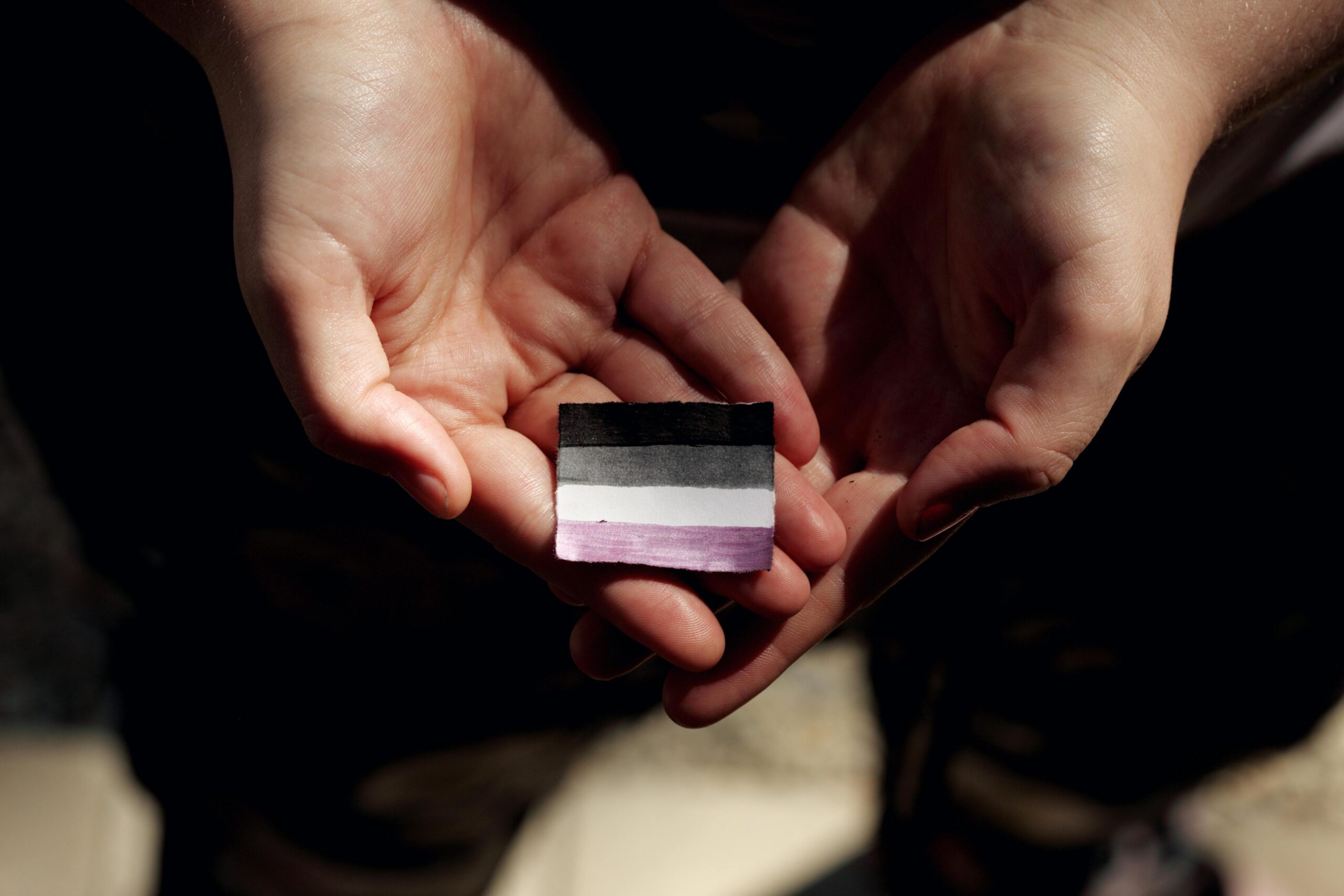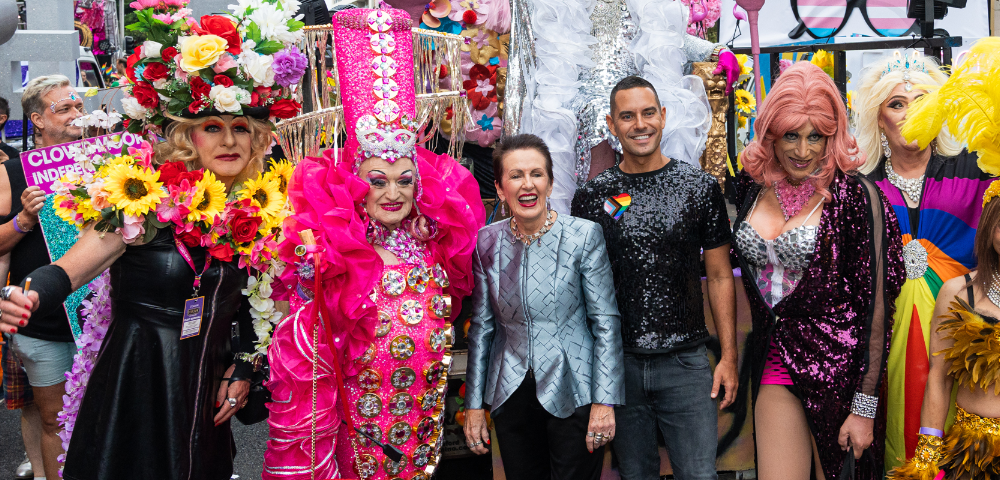

Recently on June 17, thousands around Australia marked World Blood Donor Day by donating blood — but men who have sex with men were barred from it as usual. Rob Stott explains why the Red Cross is not to blame for this, and the positive changes that we could expect in the coming months.
This piece first appeared in the July edition of Star Observer, which is available now. Click here to find out where you can grab your free copy, or here to read it in digital flip-book format.
—–
THE Red Cross, as always, needs more blood, but it can’t take it from you or me.
That’s the bad news. The good news is we’re moving in the right direction and plenty of people are now on our side.
Recently, I had the chance to write about this issue for News.com.au and the response was overwhelming. The issue has garnered more coverage on television and radio than ever before.
Now is the chance to have our voices heard and make it clear that allowing gay men to donate would benefit the blood service, not harm it.
But first we need to clear up a few misconceptions.
Importantly, the ban is not technically on gay men — it’s on any man who has had sex with a man in the last 12 months. (Sounds pretty gay to me.)
So, if you’re having a bit of a dry spell, head down to your nearest blood centre and donate. In the colder months, The Red Cross could really use a hand.
The 12-month window is a very conservative estimate of the length of time it’s believed a person may be infected with HIV before the virus shows up in test results. As any GP or sexual health clinic will tell you, the actual window is less than three months thanks to a new generation of testing technology.
Second, a lot of anger gets directed at The Red Cross for not allowing us to donate — but they’re not to blame.
Understandably, when a queer man goes to donate and is turned away by The Red Cross he gets angry, but they’re actually on our side on this. In May, The Red Cross even announced a campaign celebrating its LGBTI workers.
Blood Service chief executive Jennifer Williams said she wanted to change people’s perceptions of The Red Cross: “The Blood Service sometimes attracts criticism for blood donation deferrals regarding sexual activity, but this has nothing to do with our view of LGBTI people.
“Ultimately, it is our aim is to ensure that everyone is treated with respect at the Blood Service because it is part of our values and that everyone understands and celebrates diversity in whatever form it presents itself.”
The responsibility for blood donation rules rests with the Therapeutic Goods Administration (TGA), and they’ve got a pretty high bar for changing the way things are done.
Last year, The Red Cross teamed with The Kirby Institute and a bunch of other organisations devoted to stopping the spread of HIV and asked the TGA to lower the window to six months.
Despite a lot of effort and some pretty sound science going in to the submission, the TGA rejected it with little explanation.
A spokesman for The Red Cross told me the organisation still believed in lowering the window to six months, which would certainly be a step in the right direction.
Professor David Cooper, head of The Kirby Institute and one of Australia’s leading experts on HIV, says even six months is a longer wait than necessary for gay men.
“It’s definitely over the top,” he said.
“With fourth generation testing we’ve got a much shorter window of just a few weeks now… The window could definitely be lowered.”
Rob Lake, executive director of the Australian Federation of AIDS Organisations, agrees.
“We were very disappointed by the TGA’s decision. We thought it really didn’t reflect a very good scientific analysis. I think it reflected a very conservative assessment,” he told me.
“Increasingly we see better screening technology being used. The risk balance is set too sharply.”
The good news is change is already happening. For example, South Africa’s blood service recently lifted its blanket ban on gay men donating, choosing instead to favour anyone in a stable, monogamous relationship.
It’s not perfect, but it’s a step in the right direction, and the world will be watching to see how the new policy unfolds.
More good news — we get to have another crack.
People close to the process have told me they planned to return to the TGA and ask for the window to be lowered to six months.
This could happen after this year’s International AIDS conference which takes place in Melbourne in July.
When the time comes, we’ll all be able to make submissions to the review committee, explaining why a blanket ban on men who have sex with men is hurting, not helping, Australia’s blood supply.
The best thing we can do as a community is keep talking about it. The Red Cross is on a long journey when it comes to dealing with the LGBTI community, but they’re taking important steps.
The coming months will see the beginning of an important dialogue between The Red Cross, LGBTI advocates and health authorities, and we’ll all get a chance to have our say.
It will be a long, hard slog, but the tide is turning on this issue and 2014 promises to be an exciting year in which we finally have our voices heard and eventually, are treated as equals.
Rob Stott is the Morning Editor at News.com.au. Follow him on Twitter: @Rob_Stott










The Red Cross in Australia is a nasty ugly bigot. It takes blood from those in the closet, but gives a special stigma to those who are out, and calls them dishonest liars. Sexuality is the focus of the bigot, not actions that might make blood unsafe.
The Red Cross in Australia needs a psychiatric evaluation to treat their homophobia. It defines Ian Thorpe as a risk today, but yesterday would have gladly taken his blood if he offered, because it was thought he was not gay. Instead of focusing on people doing the right thing, the Red Cross has an unhealthy fixation on sexuality. The openly gay Ian Thorpe now faces discrimination, regardless of his monogamy, simply because he has now declared he is gay.
It is time a university or government took over the blood bank, as currently the Australian Red Cross relies on homophobia to determine blood safety, instead of risky activity.
The Red Cross have redefined the word homosexual, to mean diseased and dishonest. We can be doctors, soldiers, pilots, and cleaners, but never trusted equally, to fill out a form for the Red Cross. They trust those who do not put down they are gay. Rather than ask about risky activity, this organization defines homosexuality as unhealthy. It defines homosexual as someone who barebacks for six months with strangers. No such judgement is made towards heterosexual people; they are trusted to put down risky activity.
Initially, the ban was even on race, Haitians, but society has moved on. To target a whole group of people, based on sexuality, is wicked, it is a wrong, it stigmatises people. The Red Cross has become a symbol of hate for some. If a heterosexual person can be trusted to put down risky activity, then there is no need to put homosexual on the form, unless you define homosexual in a different way to the dictionary. The organization should end the discrimination, and change the form so it is based on risky activity, not sexuality.
Surely the issue should be unsafe sex, or practices that might make blood not being suitable, certainly not the sexuality of a whole group of people.
Saying no sex for six months, for homosexuals only, is itself, a homophobic thing to say. We are all being lumped together as unsafe individuals who have unhealthy contaminated blood.
The Red Cross in Australia should end the discrimination and stop being so absurd. In Spain, when the discrimination was ended, the blood supply safety actually increased. The focus was changed to risky behaviour, regardless of sexuality. I am married, and have been with my beloved for 13 years. Are they seriously suggesting I stop sex for six months? The Australian Red Cross relies on people giving their sexual history, to a complete stranger, so the integrity of declarations is setup to fail. It might reassure some of the managers, however the hard reality is not all people are so open and honest. People are people. Some will lie, some will not.
The Red Cross still has a retro hysteria about AIDS. When they should follow Spain, and focus on risky behavior, instead of targeting “practicing homosexuals”. They should also be campaigning for people to do the right thing. Honestly, in 2014, the discrimination is well passed the use by date.
Maybe you should brush up on your comprehension skills, read the article again, Adam – it clearly states that the discrimination is based on the standards set by the Therapeautic Goods Administration – NOT the Australian Red Cross Blood Service. And it is obvious that this is pretty much the whole gist of the article.
And, suggesting a professional organisation suffers from ‘retro-hysteria’, or hysteria of any sort for that matter, is a tad, well.. hysterical. People suffer from hysteria, organisations not so much. Over-vigilance, might be a better descriptor.
If you’re going to put your opinion out there at least show some effort to absorb the facts first. Save your indignation or at least focus it in the right direction, otherwise you’ll potentially disqualify any valid argument you might have before you even begin.
On another note, congratulations on 13 years.
The blood safety argument is Disney On Ice, a nice looking show without substance, except of course, for studies they can find on 15 or so men in the scientific trash can, who bareback at parks, you know, those sort of tiny studies that cause gay panic. The Red Cross belongs in in a museum next to the White Australia Policy. It makes Tony Abbott look life GLBTI activist. Sure they are celebrating GLBTI workers, because they are leaving in droves, and along with that goes vital expertise. It is about staff retention, because so many people are exiting, the place is on the nose with the public and staff.
The TGA has formulated the policy of discrimination based on input from the Red Cross. The same organization who told a Tribunal in Tassie that gay men are not monogamous, a claim rejected from the Tribunal. Below is an extract from some of the good reporting by the Star Observer. Although the Red Cross won the right to discriminate, it is not as though we were ready to slam Heterosexual people in the trash, and pull out every study on a night club toilet fuck, or the epic sex tourism of mining workers. No, we did not resort to going through the scientific trash bin. We could have, and perhaps the outcome would be different.
If Spain can end the ban, and focus on risky activity, and see an increase in blood supply safety, you wonder why the Australian Red Cross cannot end the gay panic everytime a gay happliy married monogomous man turns up to give blood.
From the Star Observer
Evidence was presented to the Tasmanian Anti-Discrimination Tribunal in the case brought by Launceston man Michael Cain, challenging the amount of HIV risk associated with the gay population.
US epidemiologist and bio-statistician Dr Scott Halpern challenged calculations presented by Australian epidemiologist and former Red Cross advisor, Professor John Kaldor.
Halpern said Kaldor’s evidence had significantly over-estimated the prevalence of HIV in the gay community and failed to distinguish risk with those in multiple as opposed to monogamous relationships.
The Tasmanian Gay and Lesbian Rights Group has dismissed Kaldor’s previous evidence that even low-risk gay men are still at higher risk than high-risk heterosexuals.
Kaldor told the hearing in early October the risk was associated with the prevalence of HIV in sexual partners, and the prevalence in gay men is of the order of 100-fold or more. Halpern has contested this, saying it is likely there are certain groups of heterosexual men whose risk of transmitting HIV via blood donation is at least as high as the risk among certain groups of men who have sex with men.
Star Observer 2009
I can’t donate blood because I visited England during a time when the mad cow stuff was going on.
But is the reason men who have sex with men are banned from giving blood because of the higher risk of transmission involved with anal sex? Because men who have sex with men are not the only people taking part in anal sex and not all men who have sex with men are having anal sex. Surely the ban should be on those people of any orientation or gender partaking of less safe sex practices or with multiple partners.
About 5 years ago I did donate money to the Australian Red Cross, but ever since I have heard that MSM are banned from donating blood within Australia (and many parts of the world) – then my charity money now goes straight to the Australian Sex Party, Australian Marriage Equality or Keno (numbers picked are 19, 31, 33, 44, 69 – also known as the 5th spot) and never ever again will I ever donate money to charities or unions in this country – because of all the religious involvement, corruption and tax free status rorts!